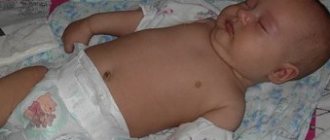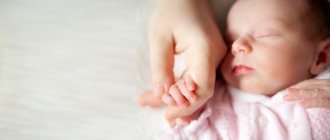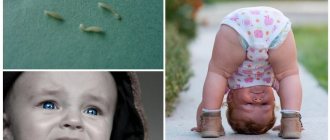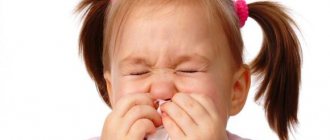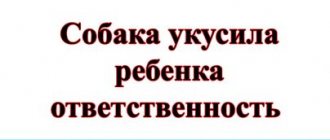Breastfeeding is not an easy process and can be quite painful. Unpleasant sensations are primarily associated with reasons such as cracks, lactostasis and wounds. The latter appear when the child begins to bite the breast. Almost every mother has gone through this test. This phenomenon may have several reasons, but any of them must be eliminated in order to prevent the baby from developing a bad habit. At this difficult stage, many women are tempted to stop breastfeeding, but if there are no medical indications, it is important to try to preserve it.
Benefits of breastfeeding
No one has the right to impose someone else’s opinion on the child’s mother if for some reason she cannot or does not want to breastfeed the child. But before switching to artificial nutrition, she is advised to carefully consider her decision so that, if possible, neither she nor her baby is disadvantaged. Breastfeeding has a number of undeniable benefits for children.
- Nature has provided for everything. Breast milk is balanced and contains exactly the amount of proteins, fats, vitamins and other components that the baby needs for full development and growth.
- According to WHO research, breastfeeding improves immunity. This means that the child will be less at risk of contracting respiratory diseases.
- Children who are fed a natural diet are less likely to suffer from allergic diseases than babies who eat formula.
- Breast milk contains substances that resist the proliferation of pathogenic bacteria that cause diseases of the gastrointestinal tract and intestines.
- Experts who have observed naturally-fed children report high rates of visual memory and vision. This proves that breastfeeding stimulates brain development.
- Breastfeeding reduces the risk of cancer, diabetes, and cardiovascular disease.
- Unlike artificial nutrition, breast milk is always at the optimal temperature and always fresh. There is no need to get up at night, you just need to put the child next to you.
- Breastfeeding is an irreplaceable tactile and visual contact. The child feels protected and cared for.
As you can see, breastfeeding has many advantages for your baby, so it is important to maintain it, even if the baby bites the breast. Moreover, this problem can be quickly solved with the right approach.
Teething
One of the main reasons why a child may start biting is teething. While he does not have a single tooth, he will grab the nipple with his gums and pull, which is also quite painful. The eruption of the first teeth can leave the mother with such unpleasant consequences as biting the breast, wounds on the nipples. The situation will worsen if the woman also has cracks from feeding.
Since it is impossible to stop the process of teeth coming out, it is necessary to relieve the painful sensations that lead to the child biting the breast.
Special cooling and pain-relieving gels will help in this matter. You can use teethers, rubber toys, crackers, apples and any safe objects as a chewer.
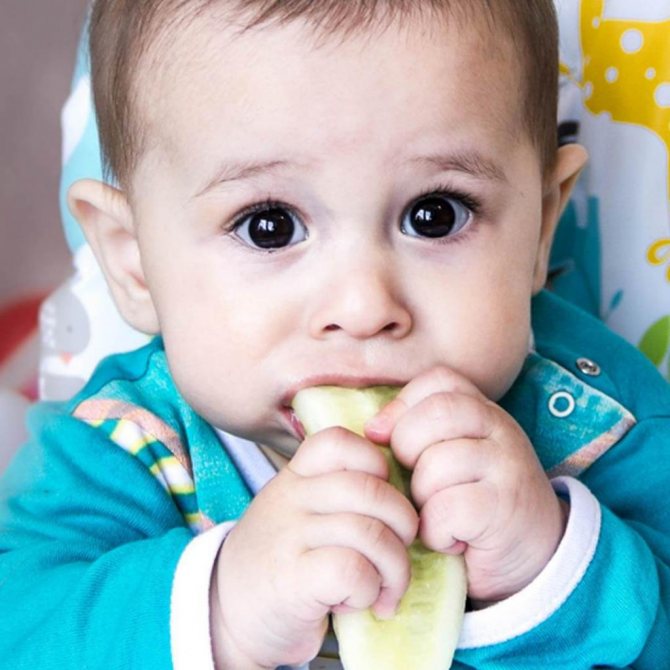
Mixed feeding
Sometimes an infant bites the breast because the mother feeds him alternately, either with formula or with milk. As a result, he gets confused when the nipple is in front of him and when the nipple is in front of him. And the pacifier can be pulled and chewed, which is what he is trying to do with the mammary gland. Children who are accustomed to a pacifier also often bite, not seeing anything unnatural in this, because for them it is a habit.
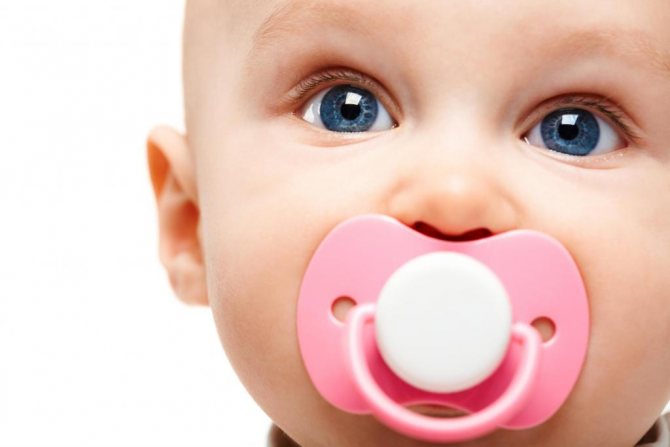
By receiving the mixture through a bottle, the little one gets used to the fact that he gets food without effort, because the mixture itself pours into his mouth. Therefore, often such children end up completely refusing the breast or simply playing with it and not eating. If there is a need for additional feeding, it is recommended to do this with a syringe or spoon.
How to stop a baby from biting
The child bites the breast during feeding, what should I do? If the baby bites the nipple during lactation, you should not try to tear the baby off the breast - such actions will damage the delicate skin even more. To open the child's jaws, you need to insert a finger between them, as a result of which the pressure will ease. At this point, you need to carefully remove the breast from your mouth.
On a note. If the mother has large breasts and she has to hold them with her hand during lactation, then it is recommended to pull out the nipple using the index finger of the same hand. The nail must be short, otherwise there is a risk of damaging the skin of the nipple or scratching the baby's mouth.
Another good option is to hold the baby very tightly to you - this action will prevent him from breathing normally through his nose and will force the baby to let go of the nipple. It is also permissible to lightly pinch the child’s nose with your hands, then he will open his mouth and release his breast.
Next, you need to stop breastfeeding for a while so that the baby does not have the desire to check how strong or sluggish the mother’s reaction to the next bite will be. After the first incident, you can give your baby a teether to chew on. Then the baby will know what he can check his teeth on and what he can’t.
Sometimes mothers resort to more radical measures: in response to a child’s bite, they sharply pull away from themselves. After a couple of seconds, the baby can be calmed down. Thanks to such actions, he will understand that his behavior was wrong, and that in the future, biting the chest will lead to unpleasant consequences for him.
On a note. Even very young children can be weaned from biting the breast. It is important to show the child the correct type of behavior during breastfeeding and reinforce it with affectionate support and approval.
To successfully wean a baby from a bad habit, the mother must be able to prevent biting. To do this, she needs to master the following skills:
- Be ready to take away the baby's nipple at the slightest sign of biting;
- Learn to correctly remove the nipple from the baby’s mouth (this was discussed above);
- Pay more attention to the baby. The fact is that children often grab the nipple in order to attract maternal attention. Therefore, it is necessary to actively engage with the child just before feeding begins. This could be touching, communication, eye contact;
- Closely monitor the child during breastfeeding. This will help determine the moment the process is completed, when the baby’s jaw begins to tense. This indicates the need to stop lactation so that the baby does not have time to bite the mother;
- Teach your child using words, affection, and making eye contact.
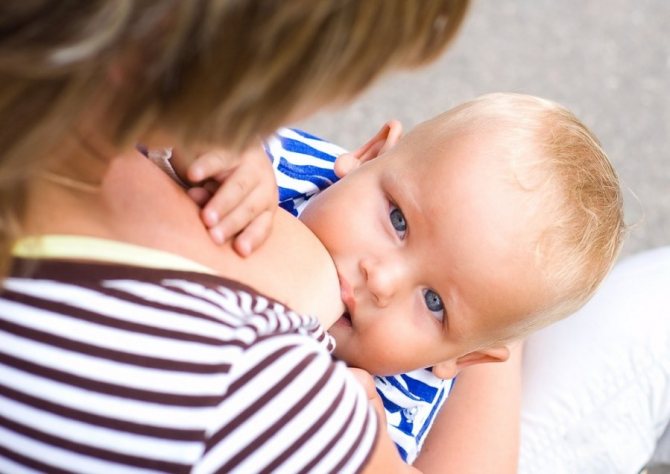
Child's illness
Infants cannot speak yet, so they communicate their problems in ways that are accessible to them. If he has a tummy ache, fever, or other type of discomfort, he will try to tell his mother about it. To attract attention, the child bites the breast. He doesn't eat, he just hurts. In this case, you should not scold the baby; it is better to direct all your efforts to identifying the problem and eliminating it.
Separately, it is necessary to say about a runny nose. When a baby has a stuffy nose, he cannot eat properly, as breathing is difficult. The baby may be angry because he wants to eat, but he can’t. The solution in such a situation is to position the child vertically, then the mucus will move away from the nasopharynx.
Why does a baby bite the nipple when feeding - reasons
Young children who have not yet cut their teeth may bite the nipple when feeding, squeezing it with their gums. Psychologists say that this is how children learn about the world around them and show curiosity. They are wondering what will happen if they press their mother’s breasts hard – will they take it away or not? Such interest is closely related to the psycho-emotional development of the child.
Babies as young as three months old may chew on the nipple even if they are hungry. This is how they play with their breasts. While playing, babies look at their mother, smile at her, while biting the nipple and moving it from side to side. These activities help the child gain new skills. He masters the movements of his lips and tongue. If your child behaves this way, rest assured that he is just having fun. Don't worry about your milk being bad or not enough.
What should a mother do to prevent her baby from biting?
You need to show the baby that you don’t like this behavior. This can be done by briefly weaning the breast. In this case, you need to make a stern face and calmly but seriously say: “You can’t!” Mom is in pain because of the bite, so Dima (Yanya) will no longer receive milk.” Despite the baby's dissatisfaction, try not to breastfeed him for at least 10-15 minutes. Repeat this every time. After some time (two or three times), the child will understand what happens after he bites his mother’s breast: the mother is unhappy, the breast is inaccessible. The toddler is not happy with both of these options, so he will try not to bite you again! It happens that the nipple is bitten until it bleeds. In this case, you should not give the sore breast to the baby until the blood clots and turns into a scratch (otherwise the baby will swallow your blood, which is not good).
Teething
Teething children experience pain. They constantly chew on something, trying to get rid of unpleasant sensations. Mother's breasts can be used for these purposes. And the baby’s teething teeth are sharp as knives! And the jaws are so strong! The baby is teething, and it goes without saying that the child wants to understand why this something appeared in his mouth. Therefore, the baby bites everything during this period. But this doesn’t make it any easier for mom.
How to proceed?
If your baby has swollen gums, give him a special teething toy before feeding. It can be bought at any pharmacy. Let the baby scratch his gums as much as he needs. After that, offer him your breast. It is advisable to interrupt feeding several times so that the baby can use the teether again. When another tooth comes in, lubricate your child’s inflamed gums with a special anesthetic gel before you start feeding.
teether
Nose is not breathing
When a baby has a stuffy nose, he experiences discomfort when sucking. At the same time, he can direct his dissatisfaction to his mother’s breast, because, being in his mouth, it prevents him from breathing. One way to correct something or show that he is uncomfortable is to bite his mother's nipple.
How to help a child?
If your baby has a runny nose, clean his nasal passages with an aspirator before feeding, removing any secretions. Apply it vertically to your chest, in this position it will be easier for the baby to breathe.
You're applying it to your chest incorrectly.
If during breastfeeding the mother is distracted by something else - talking on her mobile phone or watching TV, the baby may slip from the correct grip on the breast. In this case, the mother's nipple is no longer deep in the baby's mouth. The baby will definitely let his mother know that he has become uncomfortable eating.
Incorrect attachment to the breast
A common reason why a child bites the breast is the baby's incorrect attachment to the breast. The correct position during feeding - the baby grasps not only the nipple, but also the areola around. The chin and nose should rest against the chest, but so that the mammary gland does not make it difficult for the child to breathe.

If a baby's nipple slips out of his mouth, he can bite and pull it to hold it. To prevent this from happening, the mother must monitor the baby and not be distracted during feeding. Therefore, it is recommended to exclude the phone, TV and other distractions during this time. If the baby is in the correct position, he will not bite the breast.
Why does the baby bite the breast when feeding?
The question of why the baby bites when feeding is relevant for many young mothers. This behavior causes pain to the woman and leads to injury to the nipple. It is important to understand why the baby bites. This will help you choose an effective way to correct the situation.
Common reasons for a baby biting the nipple while feeding:

- violation of breastfeeding technique. Young, inexperienced mothers often position their baby incorrectly during feeding. If the angle of the baby's head is too sharp, it will only latch onto the nipple. As a result, it will be uncomfortable for him to suck the milk. Trying to correct the situation, he may accidentally bite his chest;
- It’s hard for the baby to breathe due to nasal congestion. The cause may be not only a cold, but also dry air in the room and physiological characteristics. It is easy to understand that a baby has rhinitis by his behavior. When applied to the breast, the baby will twist his head, whine, and convulsively gasp for air;
- The baby wants to attract the mother’s attention and achieve eye contact with her. Women after childbirth are immersed in a number of problems. They often do not have enough time to do household chores, communicate with loved ones, and relax. Some people try to combine feeding with talking on the phone or watching TV. Babies feel the lack of attention from their mother and begin to attract it in an accessible and effective way;
- teething. This process is accompanied by discomfort, itching and pain. At this time, the child bites everything that gets into his mouth. With this the baby is trying to alleviate his condition;
- The baby is often given a pacifier. While playing with the pacifier, he can grab it with his teeth. During feeding, the baby forgets that it is not a pacifier in his mouth, but his mother’s breast;
- the baby has eaten and is playing with the breast;
- the child falls asleep. At this moment, he may accidentally bite the nipple;
- the baby is taken from the breast when he is not yet full;
- the baby does not have enough milk. By biting the breast, he tries to stimulate the release of fluid;
- fright This could be the loud voice of a mother or father, sounds on the street.
Children under six months of age do not know how to clearly express their experiences and emotions. Changes in their behavior may indicate real problems. Babies 4-6 months of age are inquisitive. They are trying to study the world around them, putting everything in their mouths and testing their teeth. Maternal breasts are no exception.
Children from 6 months to one year often bite the breast as a game. After 12 months of age, nipple biting is usually caused by discomfort. So the baby calls on his mother to help him. One-year-olds may also bite for fun.
Lack of milk
During the period of establishing lactation or during long breaks in feeding, there may be little milk. If a baby bites hard at the breast, it may mean that he is not getting enough nutrition and is hungry. In this case, the baby will try to squeeze every last drop from the mother’s breast, even to the point of biting.
To calm the baby, you need to feed him. If a woman supplements her baby with formula, it is important not to offer him a bottle, since then there is a risk of completely refusing natural feeding.
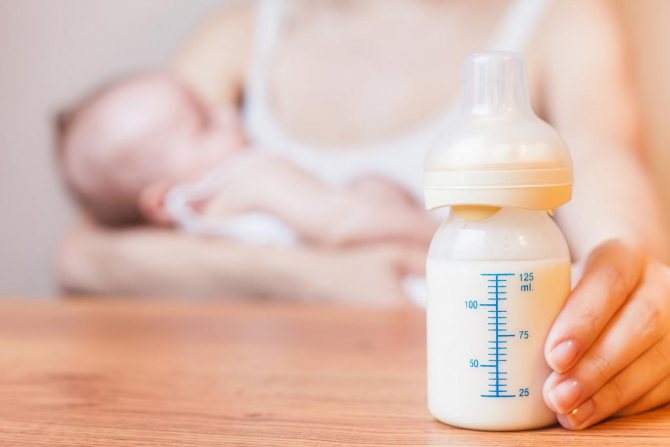
To establish lactation, you should regularly put the baby to the breast, eat lactogenic foods, and drink more fluids to stimulate milk production. If necessary, the pediatrician will prescribe stimulating medicinal teas.
To attract attention
A young mother has a lot of things to do around the house. In addition to caring for the baby, she still has responsibilities such as cleaning, cooking, and going to the store. And also a woman wants to spend a little time on herself. In all this commotion, the fair sex does not always have time to play with the baby, read a fairy tale, or just talk.
Despite the fact that children at this age do not speak, they love communication. They need their mother’s attention constantly; she represents the whole world for him at this time.

If a child bites his chest with his teeth, it is possible that he lacks attention. To understand that this is the reason, you need to make sure that the baby is not sick, he is not teething and he is well-fed.
It is very easy to correct this situation; all you need to do is set aside more time to just be with your baby. And if possible, delegate some of your responsibilities to someone in the household.
Baby bites while feeding
Women's style » Home and family » Children » Newborns and infants
A woman breastfeeding her baby - what could be more beautiful than this picture? This is a symbol of perfect harmony. True, outside observers are unlikely to realize that at this moment a nursing mother may feel something other than emotion and tenderness. It turns out it can. Pain is what often prevents a mother from fully enjoying the joy of motherhood. A baby biting the breast while feeding is quite common.
Are your teeth to blame?
Many mothers of infants dread the appearance of their baby's first teeth. Of course, they’ve probably heard a lot about what torture breastfeeding can be. But it should be noted that not only six-month-old babies bite the nipple on the chest, but also children at a very early age, whose teeth are still in their infancy. As psychologists say, this is how the baby learns to understand the world around him. But this fact does not make feeding a painless process. There is only one plus: the sooner you notice such a habit in your child - while he is without teeth, the faster you will wean him off it and the easier it will be for you to breastfeed in the future - when the baby already has teeth.
Why does a baby bite the breast while feeding?
A mother who is subjected to a “biting” attack during breastfeeding is not only hurt, but also offended - after all, she has the closest and dearest creature in her arms. But she understands that it’s stupid to be offended by such a baby, but it’s necessary to figure out why she does this. Moreover, the reason for this behavior of the baby may be related to the actions of the mother herself.
- The baby is not placed at the breast correctly. Breastfeeding is a whole science. It is important not only when and how much to feed, but also how. If the angle of the baby's head when feeding is too sharp, he will only grasp the breast nipple with his mouth. With a wide range, he will be able to grab it along with the areola, and this will protect the mother from painful sensations. The deeper the nipple is in the baby's mouth, the easier the feeding process is.
- The baby is teething. The gums become red, swell, and hurt - it is not surprising that the baby rejoices at any opportunity to “scratch” them, including with the help of his mother’s breast.
- The baby really likes his rubber pacifier. He developed a strong reflex to actively chew this object and, getting carried away and forgetting, he could easily confuse it with a breast.
- The baby does not have enough mother's milk. Mom's breast is the only source of nutrition that is subject to him. But the baby does not understand that the intensity of absorption, no matter how hard he tries, will not affect the amount of food. And I don’t want to be hungry. So he becomes an involuntary aggressor.
- The child gets your attention. Imagine: you prepared dinner, set the table, invited guests, and then went into another room. Guests will be, at a minimum, perplexed, and at maximum, they will try to attract your attention. This is how your baby will react to the fact that while feeding you are watching TV or talking to someone on the phone, instead of joining him in the process. In the end, it may be because of your inattention that the baby is holding the breast incorrectly and experiencing discomfort.
- The child has a runny nose. A stuffy nose is a very common cause of improper breast latch. The baby already has difficulty breathing, and during feeding he experiences even more discomfort. Biting his chest is his personal protest against inconvenience.
- The child is full. A well-fed child is a bored child. He has satisfied his hunger and now demands spectacle. In such a situation, the breast is the most accessible toy for him.
As you can see, none of the reasons for a baby’s “biting” during breastfeeding is so extreme that it cannot be dealt with. Your main weapons should be attentiveness and patience.
How to respond to breast biting during feeding
The natural reaction of a nursing mother to sudden pain is a loud exclamation. On the one hand, it can once and for all discourage a child from behaving in an unkind manner. A definitely negative reaction to a bite can be a good lesson. But on the other hand, an overly sensitive child may also react sharply and peremptorily to such a cry - he may refuse to take the breast altogether and thus make his mother’s worst dream come true. In addition, the child may decide that this is some kind of game: they say, he bites - the mother screams. The baby is happy, and his mother has tears in her eyes. So the task of a nursing mother is not to go to extremes. If a child bites the breast while feeding, there is no need to throw tantrums, but it is also unacceptable to ignore this behavior of the baby. The ideal solution to a problem is to learn how to prevent it.
How to stop your baby from biting your breast while feeding
The best style of behavior when forming good habits in a child is natural and neat. You need to achieve your goal gently, unobtrusively, but firmly and decisively. Watch your baby closely while feeding. Control the process from start to finish. At the first sign of an attack, respond with action.
- Gently remove the nipple from the baby's mouth. If necessary, separate his jaws with your finger - your little finger or index finger.
- As soon as you start feeding, capture the baby’s full attention. Look at him, talk to him: let him feel that his mother is here, nearby.
- Carefully monitor the baby's position during feeding so that he is comfortable and so that he does not have a single chance to intercept the nipple and possibly bite it.
- Observe the child’s emotions - many mothers can eventually determine when to stop feeding, and are even able, by clenching their children’s jaws in a special way, to intercept a bite to the breast literally seconds before it.
But what you should not do under any circumstances is to practice breastfeeding if the child clearly does not want to do this. However, it happens that it is not possible to anticipate events and the child has already formed the habit of biting the breast. In this case, it is necessary to solve not a potential, but a real existing problem.
Baby bites breast while feeding: how to help mom
First of all, take care of yourself and your breasts. To protect the delicate skin of the nipple from baby bites, which can be quite painful, you can use a few simple techniques:
- Do not tear the breast away from the baby, but calmly remove the nipple from his mouth. Insert your finger between the jaws - the mouth will open on its own, and your breasts will be free.
- Hold your baby close to your chest or lightly pinch his nose. If there is a lack of air, he will be forced to open his mouth and release the nipple.
- If the pain bothers only one nipple, then start feeding from the other so that the main load falls on it.
- If your breasts still suffer from bites, be sure to use special ointments and gels to heal the wounds.
You shouldn't harm yourself to accommodate your baby's bad habits. At the same time, you must immediately make it clear who is in charge in your couple and who should obey whom.
Baby bites breast while feeding: how to help baby
The mother is responsible for two: she needs to protect herself from injury, and she must let the baby understand how he can and cannot behave when breastfeeding:
- Do not encourage biting. If bitten, stop feeding immediately. Some mothers act very decisively - they generally leave the child for a while so that he develops a reflex: he bites - the mother leaves - it’s bad without the mother - which means you can’t bite.
- Influence the child emotionally. When bitten, you must immediately very sternly say that you cannot do this and that you do not like it. The mother’s menacing tone will bring the baby to his senses and set him up for the right behavior.
- If your baby behaves well during feeding, be sure to praise him.
- Offer your child alternatives. If he wants to bite, let him bite. Just not your breasts, but a toy or special gum massagers.
However, you must be consistent. You cannot offer new feeding rules every day. Try not to go to extremes: do not be too irritated and offended by your baby - after all, the child does not understand that he is hurting you, but at the same time, do not allow him to behave the way he wants, just because you feel sorry for him.
Unpleasant sensations during feeding are not a reason to stop. But you don’t have to endure pain either. And if you are yet to breastfeed, there is no need to be afraid of it in advance. Not all children bite when feeding, but almost all of them get rid of this bad habit safely.
onwomen.ru
Baby playing
In addition to all the stated reasons, there is also the simplest, but no less common. Often, if a child bites the breast, he is playing around. This phenomenon applies to children older than six months. The baby wants to be mischievous and play with his mother. Usually at such a moment the bully has a sly look on his face and a sly twinkle in his eyes.
The games of young children often make those around them wince in pain. Children can hit you, pull your hair painfully, pinch and bite. Parents need to stop such games in advance, before their baby becomes a habit.
If your nipples hurt
It happens that a child touching the mother's breast leads to cracks. Even the smallest damage by a couple leads to lactostasis, mastitis and other infectious diseases. To avoid problems, follow simple rules:
- wash your breasts at least 1-2 times a day;
- use special anti-crack products (ointments, creams) for the nipples;
- use breast pads;
- wear a comfortable bra;
By following the simple rules listed above, you can easily avoid breast bites.
When a child begins to develop teeth, the process of breastfeeding is sometimes overshadowed by the fact that the baby bites his mother during lactation. Therefore, many women, without waiting for the first incident, immediately stop breastfeeding. However, this is not at all necessary. If the baby attaches normally, then the problem most often does not arise. What to do if your child bites your breast? How to teach your baby to latch correctly? This article will answer these and other relevant questions for nursing mothers.

The process of breastfeeding requires a responsible approach on the part of the woman
A woman’s normal reaction to pain is to wean the baby from biting once and for all. Many babies are frightened by their mother’s loud exclamations and at the same moment release their breasts, and some even begin to cry. Such a negative experience can cause a child to completely refuse breastfeeding. Therefore, it is necessary to find a soft approach to solving the problem.
How to stop a child from biting the breast?
Whatever the reason that the baby bites during feeding, it must be eliminated. Otherwise, the mother will not receive any joy from feeding; she will subconsciously prepare for pain and negativity every time. These emotions are transmitted to children through milk. Breastfeeding should not be a feat on the part of the mother.
So what should you do if your baby bites your breast? In the matter of weaning from this bad habit, it is important for the parent to be patient.
- If a child has bitten a nipple, you should not shout at him or even raise your voice. A loud reaction can frighten the baby to tears. In the most severe case, he may even refuse to take the breast altogether, remembering the negative reaction.
- When bitten, you need to look at the baby, calmly remove the breast and explain that the mother is in pain. Most likely this will need to be done several times, but soon the baby will understand the relationship that as soon as he bites, the source of warmth and food moves away from him.
- As soon as the woman feels pain, she needs to release the mammary gland from its grip. It is not recommended to pull on the breast, trying to pull it out of the baby's teeth. He won’t let her go like that, and the nipple may be injured. An effective way is to place your finger in the corner of the baby’s mouth. Then he will bite him, and in the meantime the nipple can be easily removed.
- If the baby starts crying as soon as he loses the breast, he should not be given it back immediately. The baby should be reassured and feeding continued after a couple of minutes. If the mischief is repeated, the procedure is performed again.
- When the baby eats calmly, the mother needs to praise him and pat him on the head. Under no circumstances should you do this when he bites, otherwise he will learn that mom likes it.
- As soon as the baby has fallen asleep, it is necessary to carefully remove the nipple from the mouth so that he does not pull on it in his sleep.
What to do if your child starts biting your breast
No matter how severe the bite, there is no need to yell at the child or spank him. These actions can achieve the opposite effect: the baby, seeing what a violent reaction his behavior causes, will bite the breast specifically to have fun. Another scenario is that the child will be very frightened and will no longer want to take the breast, and the trusting relationship with the mother will be undermined.
The baby sucks milk with wave-like movements; the main work during feeding is done by the lower jaw. It is important that most of the areola is on its side, and the nipple is deep in the mouth. How to do it? You need to lay the baby in your arms so that he can open his mouth as wide as possible - his head is slightly tilted back, his chin should not be pressed to his chest.
Strong, as soon as the baby sees the breast, he will open his mouth wide in search of the nipple. At this moment, you need to take the breast so that the nipple is aimed at the upper palate, and move the baby towards you. In this position, the tongue completely covers the gum and the baby will not be able to bite even with a large number of teeth that have already erupted. It may not work out the first time, the main thing is persistence.
If work on proper attachment is underway, but success has not yet been achieved, and the child bites due to pain in the gums, you can use the following methods:
- We need to take his breasts away immediately.
When feeding during the day, it is important to monitor the process and be prepared to abruptly interrupt it if a bite occurs. At night, it is not recommended to fall asleep during feeding in order to remove the breast in a timely manner after satiation. - Using a teether.
Before sucking, you can offer the baby to chew. - We use painkillers.
Dental gels help relieve pain. You cannot resort to their help around the clock; the gel can be applied to the gums no more than 3 times a day. For greater effectiveness, you need to observe the child’s behavior and use medications only when severe pain occurs.
It is important to understand:
Biting the breast while teething is not fun for the baby; his jaws clench involuntarily, and it is almost impossible to predict the moment of biting.
For other reasons, the following methods are effective:
- The baby is full and plays with the nipple.
This type of biting can be prevented by observing the feeding process. As a rule, before biting the nipple, a cheerful or cunning expression appears on the child's face. As soon as it appears, remove the breast. If it doesn’t work out, you need to sternly, without raising your voice, say: “You can’t do that!” Mom is in a lot of pain!” Excessive emotionality and the desire to shame will not be successful - the baby will not understand this. It is important to create the correct association “bite - take away the breast.” - Lack of attention or discomfort.
It is worth excluding all possible causes of the child’s discomfort: a wet diaper, a sore stomach, a stuffy nose, etc. In the intervals between feedings, you need to give the baby maximum attention - children who are not limited in their mother’s affection are better able to concentrate on the sucking process. - The baby didn't eat enough.
Lack of milk due to increased appetite is a short-term phenomenon; you need to put the baby to the breast more often. - The baby associates the breast with the pacifier.
Having also restrainedly expressed dissatisfaction with words, you need to remove the breast. Most babies don't like having it taken away from them while they're feeding, this helps them quickly learn that biting is not allowed.
There is no need to be afraid that the baby will not receive enough milk; only a well-fed baby plays with the breast, biting it. Immediately after removing the nipple, you should not talk too kindly to the child, play around with him, or stroke him. He may think that mom encourages biting; it will be even more difficult to wean him off in the future.
